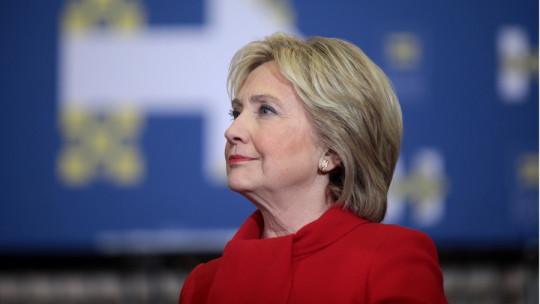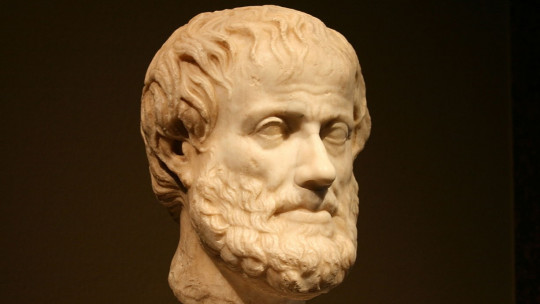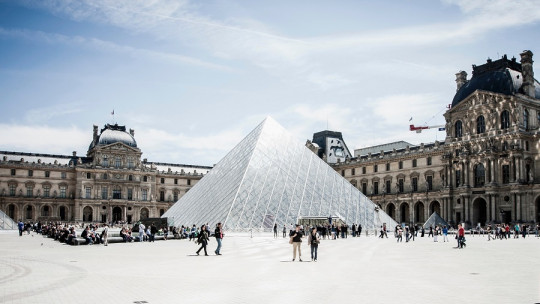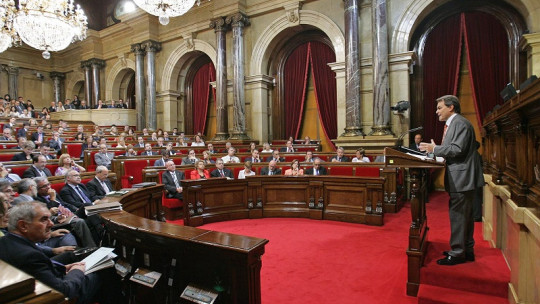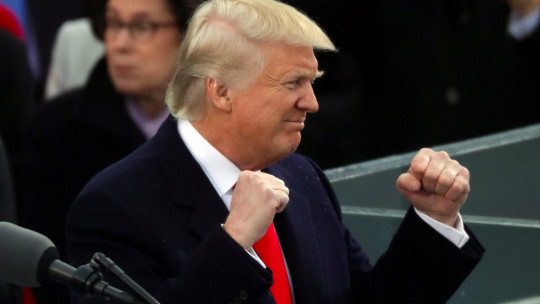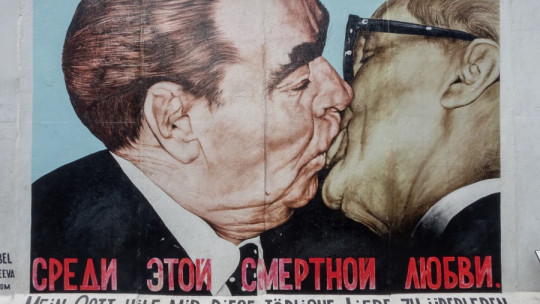
As the end of the Cold War approached, in which capitalism, represented by the United States, and communism, represented by the Soviet Union, came to an end with the, apparently, success of the Western model, Francis Fukuyama proposed that history, as and as we knew it, it was coming to an end.
The end of Fukuyama’s History is an idea that refers to how, after the victory of an ideological model economically and politically, it was a matter of time before everyone ended up adopting it Ideologies, according to him, had been the main driver of conflict and, being reduced to just one, there was no reason to continue existing.
With his successes and mistakes, the idea of the end of history of this North American political scientist has been on the lips of many, especially in the nineties when it was believed that it was becoming a reality although today it is highly doubtful. Below we will address this philosophical concept.
What is the end of History according to Fukuyama?
The end of history is a philosophical concept addressed in several works by the American political scientist of Japanese origin Francis Fukuyama (1952), specifically “The end of history?” (1989) and “The End of History and the Last Man” (1992), an idea that maintains that, given the progressive disappearance of the until then only rival of the capitalist-liberal bloc, the socialist-Leninist or communist bloc, the The Western democratic system was shown to be the winner in the ideological sphere.
Already since the 1980s and evident in the early 1990s, humanity had reached a point where, since there was no rival for capitalism-liberalism, it could be considered that it had triumphed as a functional political and economic system. Thus, the world entered a new period that Fukuyama considers the end: post-history.
The Cold War (1945-1991) had ended and with it the struggle between capitalism and communism When capitalism won, the ideological war and probable armed war ended, it was no longer necessary to continue thinking about new forms of government and management of the economy since it was the capitalist liberal democratic model that seemed to be the most functional and had demonstrated this by being adopted by what until recently were communist nations. Fukuyama considered that it was a simple matter of time before the liberal democratic system became universal.
Where does the idea of the end of history come from?
Already in the 1980s, Francis Fukuyama acted, without being at all certain about it, as a casual oracle when predicting the fall of the other Cold War contender: socialism-Leninism. This communist model had been the economic and political alternative model to liberalism and capitalism, models typical of Western democracies.
What is surprising about Fukuyama’s works is the concept of the “end of history” itself. This is about a philosophical concept that Karl Marx himself had echoed before, giving him an important diffusion throughout the philosophical ideas of the 20th century, but which in reality was not his but Georg Wilhelm Friedrich Hegel’s. Hegel had coined it when the Battle of Jena took place, a battle in which Napoleonic France had defeated the Prussian monarchy.
Hegel saw history as an uninterrupted succession of stages, which were supplanting each other with the previous ones, changing society to a greater or lesser extent from one era to another. Throughout history societies have risen and fallen, being replaced by new economic and political models. At the dawn of humanity we lived in tribes, then we became slave societies, later feudal and theocratic until we reached capitalism without democracy and, later, the creation of democratic regimes with a capitalist and liberal base.
Fukuyama considers in his works from the 80s and 90s that liberal democracy in politics and capitalism in economics is the last link in the evolutionary history of ideas. This form of government and management of the economy is the most sophisticated, being ethically, economically and politically the most efficient and no more will come after it. Since no new economic or political systems are going to be developed and there is no one else that can compete against this one, a point has been reached where there will be no historical progress since it cannot be
As liberal and capitalist democracy no longer has its main communist rival, it is a matter of time before the Western economic and political model is adopted by the other countries of the world. This does not mean that all countries automatically embrace liberal democracy and the capitalist system, but that there will be countries that are still in a historical stage, that is, they are not yet democracies or have capitalism, while other countries will have already entered in post-history, being full liberal and capitalist democracies.
All this does not mean that the world comes to a complete stop, in the sense that absolutely nothing is going to happen. Yes, things will happen, some of them not pleasant, but most of the new developments will center on science. Since there is no need for economic or political change, all efforts in progress will focus on science, especially biology and medicine, seeking a cure for diseases that continue to be fatal or improving our quality of life in biomedical terms.
Impact of his work
The publication of “The end of history?” 1989 was a true intellectual revolution, especially if one takes into account that the great and sudden fall of the Soviet Union had not yet occurred, although there was plenty of evidence indicating that it was a matter of time. The USSR, the great rival of the Western model and especially of the United States, a benchmark of capitalism and liberalism, definitively disintegrated on December 25, 1991, almost three years after this first essay was published.
During the 1980s, the greatest exponent of socialism-Leninism began to show a certain openness, a certain “good face” with the Western lifestyle. The enemy was no longer so enemy. However, this openness materialized with Mikhail Gorbachev’s Perestroika was interpreted by many Western political analysts, including Francis Fukuyama, as an evident example of the terminal decline of the communist model. The socialist-Leninist model was exhausted and the leaders of the USSR knew it, having to adopt the principles of the rival to survive.
The fact that the USSR began to bet on a timid and weak market economy and liberalism was a sign that the communist bloc was coming to an end and, being exhausted, the other bloc, the capitalist one, had no real rival to continue. standing. Although in 1989 the Communist Bloc had not completely fallen, the fall of the Berlin Wall was nothing more than a warning of what was about to happen throughout the Second World. The alternative to capitalism-liberalism disappeared and, therefore, the Cold War ended with the victory of the capitalist model
But as surprising as it may seem and despite the fact that his essays predicted between the lines the collapse of the USSR, Fukuyama did not explicitly say that the USSR and its satellite states would no longer be united or that the Warsaw Pact would dissolve. What he simply tried to expose was that if the USSR began to adopt capitalist and liberal principles in practice it ceased to be socialist-Leninist and, therefore, capitalist-liberal ideas won, regardless of whether the United States, Europe or Japan were its greatest exponents.
Were there other rivals?
Francis Fukuyama does not limit himself to talking about capitalism-liberalism and socialism-Leninism. For him, there are two great rivals that liberal capitalist democracies have had to face throughout the 20th century: socialism-Leninism and fascism, systems that would be applied as forms of government and would end up becoming almost completely extinct during the 20th century giving way to liberal democratic and capitalist systems in most cases.
Socialism-Leninism or communism had been established as a political and economic model rival to liberalism since the end of the First World War, with the Russian Revolution and the founding of the USSR, until the 1990s, as Fukuyama explains in “ The end of history and the last man”, written after the dissolution of the Warsaw Pact. Actually, communism had been the only ideology that had lasted and created a strong economic system, but not as strong as capitalism, being exemplified in its catastrophic fall.
The other model that had endangered the existence of liberalism was fascism, a system of government that would end up being defenestrated after the end of the Second World War in 1945, when Nazi Germany was defeated, Mussolini’s Italy fell and the country was completely defeated and occupied. Imperial Fascist Japan. Although some strongholds of fascism survived in Europe, in most cases they were nothing more than non-democratic capitalist regimes, not proposals for a radically different economic model. Although fascism and socialism-Leninism have fallen, the liberal capitalist system is not free from threats, although according to Fukuyama these would not be as serious threats as those two systems were. Even so, the author considers that the two great threats during the 21st century to the capitalist-liberal model will be religious fundamentalism, especially Islamism, and nationalism.
It focuses on Islamism since it was making a significant resurgence as an idea since the 1970s. Fukuyama considers that Islamism is in principle not attractive to non-Islamic societies and, especially, to Christian ones since it is seen as the polar opposite of what the Western lifestyle is. While in Christian countries there is a clear demarcation between civil, criminal and religious, this is not the case in Islamic regimes, be they republics or monarchies, and the idea of Western freedom does not exist in Muslim countries.
The other great dangerous rival for capitalist liberal democracies according to Fukuyama is nationalism Nationalisms have caused great damage since German and French Romanticism appeared in the 19th century, which served to shape it. Throughout the 20th century, the idea of a nation, which is nothing more than a simple abstraction, something that only exists in the heads of those who believe in it, has been the cause of bloody wars and genocides, the most recent European case being wild that of Yugoslavia.
The last man
The posthistorical man, also called “the last man” in his 1991 book, It is a being that will base all its economic activity on satisfying its purely materialistic and increasingly refined demands The interest will be purely economic and there will no longer be any abstraction in the form of ideology that moves us to action, to defend our ideals, fight for them or even die and kill to achieve them. Conflicts will simply be individual issues or, at most, the product of some misunderstanding.
International relations will be exclusively based on trade. Each state will compete to place its products on the international market, trying to sell them to other neighboring countries while demanding increasingly complex and refined services. There should be no wars, no ethnic conflicts or territorial claims since with the passage of time the idea of “this is my nation and this is my land” would be obsolete. The important thing will be the money and the well-being of the citizens.
Thus, the posthistorical world is, according to Fukuyama, a peaceful and prosperous place in which scientific and technological development will be what would mark the new course of history. The discoveries in medicine and other biomedical sciences will be what opens the news, not a massacre in a Third World country. Curiously, Francis Fukuyama indicates that the posthistorical world will be a very boring place and he himself asks, with a certain ironic tone, If perhaps from that boredom we human beings find the motivation to reactivate the story looking for something to pit us against each other again.
critics
Fukuyama’s works expose what he considers to be the end of history, basically explaining how the fall of socialism-Leninism implied the unstoppable rise of capitalist liberal democracy. Western countries, that is Europe and the USA, They were entering a new era of world peace as they were not faced with the constant tension of having to prepare to confront each other politically economic and military to another rival which to date had been communism.
It was assumed that, little by little, the rest of the world would export the specifically Western system, especially the American one, making it a matter of time before the world became a unipolar planet economically and politically. The rest of the countries would become liberal democracies politically and capitalist states economically. If there were any historical events, they would be minor, at most a brief economic crisis or a minor terrorist attack.
Well, we are far from reaching the end of the story. In fact, Fukuyama’s thought has been considered an example of the Western naivety of the nineties who believed that the fall of the Berlin Wall and the collapse of the USSR was synonymous with peace. Curiously, Fukuyama’s mentor, Samuel P. Huntington, had already shown some skepticism with the idea of world peace, saying in his famous book “The Clash of Civilizations” that the end of the Cold War gave way to an older conflict: the contact and possible wars between homogeneous cultural blocks, who he called “civilizations.”
At the beginning of the new millennium, exactly what Huntington had indicated would happen happened Two historically opposed civilizations, the West and the Islamic world, clashed on the morning of September 11, 2001. Several Islamic fundamentalists attack the Twin Towers and the Pentagon, symbols of North American freedom and capitalism. The event claims the lives of more than 3,000 people. It was not an attack; It was a declaration of war. The event would start a whole series of conflicts in several Middle Eastern countries in response.
Today radical Islam remains a major threat, poorly predicted by Fukuyama. The idea of jihad and recovering territories that were once Islamic is very much alive and is even attractive to people raised in Christian environments. There are quite a few Islamic State soldiers who have blonde hair and blue eyes: they are Westerners who have been recruited by Muslim fundamentalists, which makes this threat even greater.
And although Islam itself is not the problem for the Western world, but rather a small percentage of its believers who have radical and extremist ideas, there are many countries that were progressing towards liberal and capitalist democracies but that, after the Arab Spring , have returned to a certain religious fundamentalism. Furthermore, countries like Morocco and Turkey, which are capitalist, are far from being true liberal democracies, especially considering the revived religious interest in Anatolia.
AND then there are the successors of the communist bloc: Russia and China Although the Cold War ended with the disintegration of the USSR, its “daughter” the Russian Federation has continued to be a powerful rival against the Western world. Her regime is not democratic and it does not at all seem like it will be in the short term with Vladimir Putin as president. Even so, it has proven to be a very influential country in countries that have tried to enter the European Union, such as Ukraine, something that led to a civil war in 2014.
The People’s Republic of China is in theory communist, having a one-party government. However, this country knew how to do very well what the USSR tried in the eighties: open itself to the international market. Here we have a curious case that is truly a great danger for the Western liberal world, since we have a capitalist country but it is not a democratic one and could serve as an inspiration for countries that are now democracies to make a reversal. If it’s all about money and capitalism works well without having a democratic government, then there is no reason to keep it.



